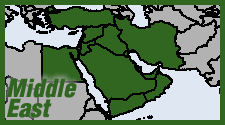 While ISIS has sparked global outrage with its beheading of journalists (and less global outrage for its beheading of captive Kurdish and Syrian fighters), US ally Saudi Arabia has been on a beheading spree of its own. We've noted that Saudi Arabia is among the Middle Eastern nations responsible for a global execution spike. Al Jazeera reported on Sept. 2 that Saudi Arabia carried out more than one execution per day in the first three weeks of August. The Saudi Ministry of Justice has announced the execution of 26 since Aug. 4. In the seven months prior to that date, 15 executions were carried out, bringing the total number to 41 so far this year. Drug charges have been prominent. Four were beheaded in the southwestern city of Najran on Aug. 18 after being convicted of smuggling "a large quantity of hashish" into the country. The Saudi Press Agency boasted that King Abdullah bin Abdulaziz al-Saud and his government are taking aggressive measures against the "social ill of narcotics" and meting out punishment "according to Sharia." Creepily, a man was beheaded Aug. 19 in the northern city of Qurayyat on charges of "sorcery." Amnesty International denounced what it called a "disturbing surge" in executions in the desert kingdom. "The Saudi Arabian authorities must halt all executions," the group said, adding that some beheadings were "reportedly on the basis of forced confessions extracted through torture."
While ISIS has sparked global outrage with its beheading of journalists (and less global outrage for its beheading of captive Kurdish and Syrian fighters), US ally Saudi Arabia has been on a beheading spree of its own. We've noted that Saudi Arabia is among the Middle Eastern nations responsible for a global execution spike. Al Jazeera reported on Sept. 2 that Saudi Arabia carried out more than one execution per day in the first three weeks of August. The Saudi Ministry of Justice has announced the execution of 26 since Aug. 4. In the seven months prior to that date, 15 executions were carried out, bringing the total number to 41 so far this year. Drug charges have been prominent. Four were beheaded in the southwestern city of Najran on Aug. 18 after being convicted of smuggling "a large quantity of hashish" into the country. The Saudi Press Agency boasted that King Abdullah bin Abdulaziz al-Saud and his government are taking aggressive measures against the "social ill of narcotics" and meting out punishment "according to Sharia." Creepily, a man was beheaded Aug. 19 in the northern city of Qurayyat on charges of "sorcery." Amnesty International denounced what it called a "disturbing surge" in executions in the desert kingdom. "The Saudi Arabian authorities must halt all executions," the group said, adding that some beheadings were "reportedly on the basis of forced confessions extracted through torture."
Amnesty researcher Sevag Kechichian told Al Jazeera that the execution spike could be backlash from the Arab Spring. "One of the reasons behind the surge in executions could be that the Saudi Arabian authorities want to send a strong message that the regime is stable and does not tolerate breaches of the law in the aftermath of the 2011 uprising and calls for reform in Saudi Arabia including by the country's Shia Muslim community," he said.
But Kechichian also said Saudi authorities might be trying to reach an annual target: at 79, the number of announced executions in 2012 and 2013 was identical.
In any event, Saudi authorities are not interested in criticisms from human rights groups. In reponse to Amnesty International, Fahad al-Anzi, a member of the king's consultative council, said the decision to execute drug smugglers transcends international agreements and human rights as they are understood in the West. Instead, it is based on the legal rulings of religious scholars in accordance with Sharia law.
Which makes the Saudi monarchy a rather strange partner in the US-led coalition against ISIS. (More at The Independent, Aug. 22; Al Jazeera, Aug. 18)
Cross-post to High Times







Recent comments
2 weeks 6 days ago
2 weeks 6 days ago
6 weeks 14 hours ago
6 weeks 6 days ago
11 weeks 4 hours ago
14 weeks 5 days ago
18 weeks 5 days ago
19 weeks 4 days ago
29 weeks 4 days ago
33 weeks 4 days ago